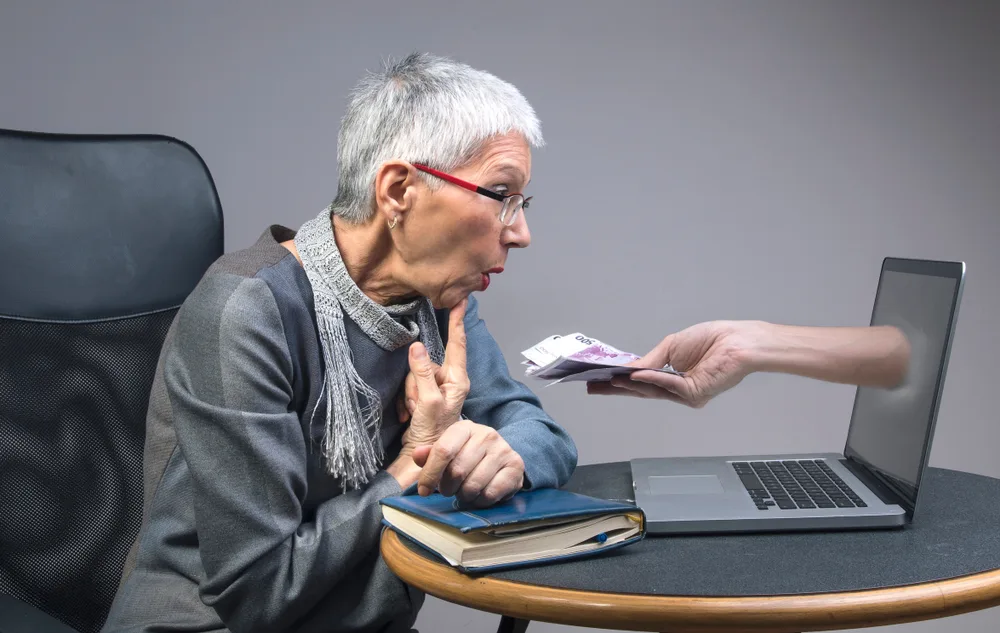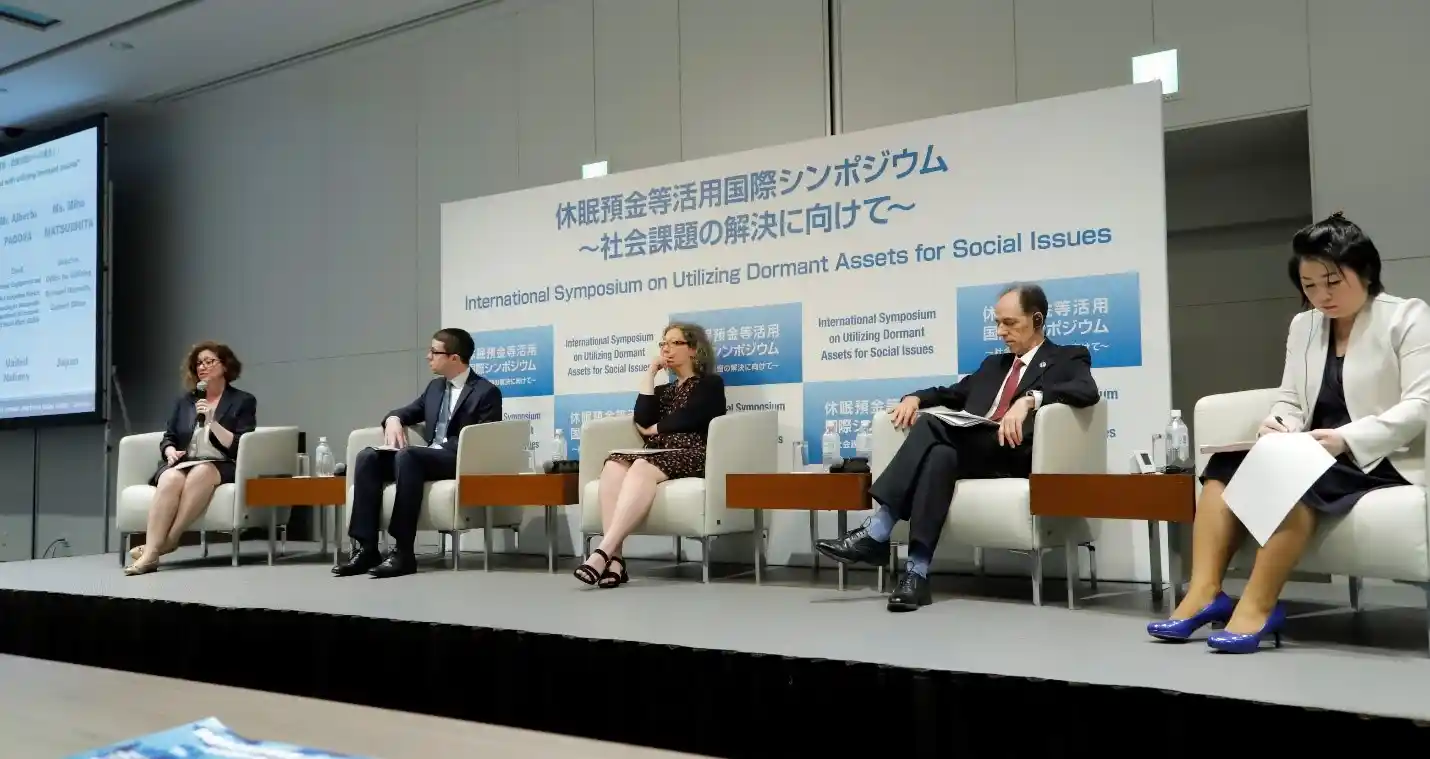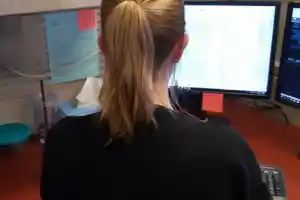Found money for a fee? Protect yourself against unclaimed property scams
June 18, 2019
The email may look legitimate and the message is enticing: An individual purportedly representing a government agency or law firm has identified you as the rightful recipient of a tidy sum of money from an outstanding estate or long forgotten funds sitting in a financial institution. All you have to do is provide them with some personal information, pay an upfront fee, and the money is all yours.

Before you take any offer of unclaimed money at face value, make sure it is authentic and not a scam. Con-artists these days are growing increasingly sophisticated in masquerading as legitimate organizations or government agencies with persuasive pitches about unclaimed funds waiting for you, all designed to defraud unsuspecting victims.
Among the Better Business Bureau’s national list of top 10 scams in 2018, phishing scams, in which fraud artists pretend to be who they are not, ranked number five. The BBB says losses are far too reaching to track, but it’s estimated more than $20 million was lost last year in phishing scams.
“Free or unclaimed money is very appealing to people, so it’s troubling when individuals are targeted by cyber-criminals in this manner,” says Alena Levitz, Executive Director, BC Unclaimed Property Society, the administrator of the Province’s unclaimed property program. “Besides costing victims money, this type of fraud undermines public trust in legitimate organizations that administer unclaimed property, like BC Unclaimed, which makes it harder for us to do our job of reuniting people with their forgotten money.”
Levitz is quick to point out that BC Unclaimed never asks for or charges a fee to search for or claim forgotten funds. She also cautions consumers to be wary of anyone alleging to hold unclaimed property who pressures them to act fast before it expires through urgent emails declaring “Immediate attention required” or “Please contact us immediately about your account.” Unclaimed funds are always available to the rightful owners. There is no limitation period to claim forgotten funds from BC Unclaimed.
Unclaimed property includes money considered forgotten or abandoned in a dormant account when the owner can’t be found after a specified period. It includes inactive credit union accounts, forgotten insurance payments, unclaimed wages, overpayment to debt collectors, as well as unclaimed proceeds from courts, tax offices and unadministered or intestate estates (death without a will where next of kin cannot be notified). BC Unclaimed maintains a free online database that members of the public can search to identify whether unclaimed funds are held in their name.
The amount of unclaimed money in dormant accounts in BC has been growing by about 10% per year. Currently the BC Unclaimed database lists approximately $159 million in unclaimed funds. In 2018, BC Unclaimed returned approximately $1.7 million in unclaimed funds to the rightful owners.
Most unclaimed accounts contain on average $300-$500. Still, it’s an attractive area for fraud artists to try to exploit. Most scammers choose targets randomly with fraudsters working from mailing and email lists they’ve purchased.
There are variations on unclaimed property scams, but the common thread is the fraudster tries to get personal information from their victim, which can be used later for identity theft, or get an upfront payment to complete the transaction.
Following are some tips on how to spot an unclaimed property scam:
The message asks you to contact a third party
A fraudulent email or letter asks you to respond to a third party designated to act on BC Unclaimed’s behalf. The BC Unclaimed Property Society never retains third parties to work on our behalf. We communicate directly with claimants. BC Unclaimed initially notifies claimants of unclaimed property by sending a letter via Canada Post, not by email.
The website or email address looks suspicious
It’s easy for fraudsters to create websites and correspondence that look legitimate, complete with logo, letterhead and other graphics replicating a trusted organization. Take a close look at the sender’s email address. Imposters often use email addresses that are similar to, but not the same as, an organization’s or government agency’s official email address, sometimes slightly altering the legitimate email address by replacing the letter I with 1, or merely adding .org or .net. BC Unclaimed’s official email address is info@bcunclaimed.ca
When it comes to dubious websites, if you’re unsure about a website, do not sign in. The safest thing to do is to close and then reopen your browser, then type in BC Unclaimed's correct URL into your browser or alternatively conduct a net search for the BC Unclaimed Property Society.
The message contains poor spelling and grammar
Before BC Unclaimed sends out correspondence, the message is reviewed for spelling, grammar, and legality among other things. Sometimes phishing scams originate from other countries, and the fraudsters give themselves away by using poor grammar and spelling. If a message is filled with bad grammar and spelling mistakes, it didn’t come from BC Unclaimed.
You’re asked to disclose personal information
No matter how official an email might look, be wary of anyone who asks you to provide personal financial information. BC Unclaimed does not send out unsolicited emails asking for your bank account number, passwords, credit card number, or to answer a security question.
You’re asked to send money to cover expenses
One telltale sign of an unclaimed property scam is that you will eventually be asked for money to access the unclaimed funds. You might not be solicited for funds in the initial message, but eventually the scammer will ask for money to cover expenses, taxes, fees or some other disbursements. BC Unclaimed does not charge a fee or ask for expenses for its services. If someone purporting to represent BC Unclaimed asks you for money, the message is fraudulent.
The cardinal rule of consumer protection is that if something sounds too good to be true, it probably is. With a little bit of due diligence and some legwork, it’s relatively easy to differentiate a bona fide unclaimed property notification from an outright scam.
More from BC Unclaimed
An international perspective on using dormant assets to fund social programs
The Japanese government hosted the International Symposium on Utilizing Dormant Accounts for Social Issues.
More than $159 million sitting in dormant accounts in BC looking for a home
More than $159 million in unclaimed money is sitting in orphaned accounts in BC
Claimant profile: Elusive unclaimed wages finds a home
Through BC Unclaimed, Lisa discovered a forgotten payroll cheque from UBC worth about $2500.

